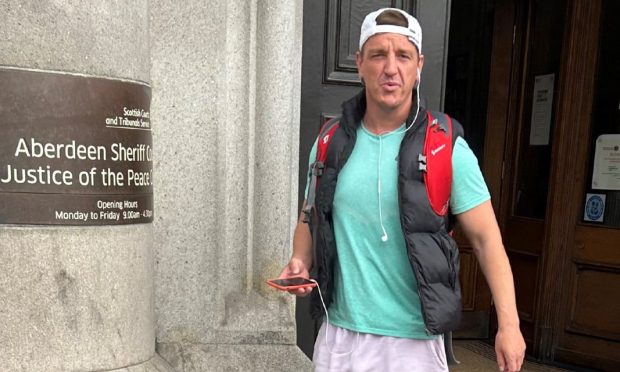
Cook County State’s Attorney Kim Foxx leaves office at the end of the month, at which time she’ll be replaced by former Appellate Court Justice Eileen O’Neill Burke. Foxx was the first Black woman to serve as the county’s top prosecutor. During her eight years in office, she approved hundreds of exonerations, helped legalize marijuana and successfully pushed to abolish cash bail.
Foxx also faced near-constant criticism for her so-called progressive approach. She did not seek re-election to a third term. She spoke with WBEZ about her time in office.

This interview has been lightly edited for length and clarity. In the room we’re in now are photos of past state’s attorneys and yourself, and there’s at least one pretty significant difference between yourself and all of them. What did being the first Black woman in this office mean to you? It was an incredible honor to be the first Black woman in this office.
I joke that the first Black woman lawyer I knew was Claire Huxtable [from The Cosby Show ], and so, to be in an office that had a long history of having men — and largely white men — in a city as diverse as Chicago, where the justice system is largely impacting communities that are Black and brown, it was an honor and a privilege to serve. I do tell people that when you break the glass ceiling, that it requires that you get scalped. Kim Foxx says “it was an incredible honor to be the first Black woman” to serve as Cook County state’s attorney.
Manuel Martinez/WBEZ How much of the pushback against you as state’s attorney do you think was about your policies versus your identity? I mean, I don’t know if I can quantify in percentages, right? I think the policies were different than anything we had done before. And I think any time you’re trying to do a new innovation, there will be pushback. I do think some of it was related to my race and my gender.
I know that because I read the hate mail. I saw the Proud Boys march on my office with the [Fraternal Order of Police]. This Democratic primary, both Clayton Harris III and Eileen O’Neill Burke talked about restoring or repairing the relationship with Chicago police, although neither would really ever get more specific than that.
What did you make of that rhetoric? Yeah, it certainly was an interesting dynamic. I came into this work having been a line prosecutor for 12 years, having worked with police officers the entirety of my career and knowing that nothing we do in this office related to crime can happen without police. So, the narrative about the police and me not getting along, that was never a Kim Foxx issue.
It never was. I’ve had [six] police chiefs since I’ve been on this job, some better than others. One awful: David Brown, who was unfamiliar with the city, unfamiliar with this department, so [he] took his failings and tried to project them onto me.
And so, there was a level of tension with the department that was incredibly high. [Editor’s note: WBEZ reached out to David Brown through the law firm where he now works. He did not respond.
] Cook County State’s Attorney Kim Foxx listens as Chicago Police Supt. David Brown speaks to reporters in 2023. Foxx says Brown was an “awful” superintendent.
Brown did not respond to a request for comment. Tyler Pasciak LaRiviere/Sun-Times I think this was the first time that I had seen in my life in Cook County that somehow, it was the prosecutor that was responsible for crime — that language coming from police. So, I absolutely believe that there was scapegoating.
When I came in, in 2016, that was the bloodiest year we’d had since 1999. No one’s blaming [former Cook County State’s Attorney] Anita Alvarez for the spike in crime. In 2017, we went down.
And ‘18 — year over year, for three years in a row, violent crime went down. I am not responsible for violent crime going down those three years, in the same way that I can’t say that when it does go up, then it’s the prosecutor’s fault. Could you see people being disappointed in the idea that actually, the prosecutor just can’t change what happens with shootings and murders one way or the other? I think we just have to have nuanced conversations that aren’t easy to digest in an eight-word headline.
I do get frustrated when I hear prosecutors say, ‘I’m going to make us safer.’ We are responders. After someone has been shot, after the chalk outline is drawn, after an arrest has been made, that is when the State’s Attorney’s Office comes in.
Cook County State’s Attorney Kim Foxx says her time in office was the first time people blamed the prosecutor for crime rates. Manuel Martinez/Manuel Martinez/WBEZ I’ve spoken with family members who’ve lost people to gun violence, and even though the police either made an arrest or identified a suspect, charges were not filed. Did you change the policy or raise the bar for prosecuting shootings and murders? I don’t know if there was a raised bar.
We had the same expectation that I would have expected that my predecessors had when I worked in the office: We charged the case where the facts, the evidence and the law are sufficient. Under previous administrations, there may have been a reluctance to say, ‘We don’t have it’ or pressure to just charge it and let the system work itself out that we didn’t have here. As we talk about the work that we’ve done for wrongful convictions — those cases came at a time in the ‘80s and early ‘90s where we had high homicide rates, and people were afraid and people wanted something done.
The biggest concentration of wrongful convictions that have been vacated around homicides are in that era. What we don’t want to do is charge a case where the evidence isn’t sufficient, as heartbreaking as it often is for families. My last question is, if [readers] only take one thing away from this, what do you want your final word for them to be on your time as state’s attorney? I want them to know that this isn’t the same office that I inherited in 2016.
This is an office that, when I came in, was called the “false confession capital” in the United States and now leads the country in the vacating of wrongful convictions. This was an office where our Cook County jail had a population hovering around 10,000 people every single day, and bail reform seemed elusive. Eight years later, the jail population is half of that, and we’re the first state in the country to eliminate cash bail.
This is an office that has welcomed people of every race, religion, creed, sexual orientation, and has been more inclusive than in any other point in this office’s history. And that its leader — who gets to have her face on a wall of men who have vague or no resemblance to me — for those who are like ‘Man, she’s been through a lot’? I wouldn’t change it for a moment. Not for a moment.
Patrick Smith is an editor on WBEZ’s Urban Affairs Desk. Email him at [email protected] .
.














